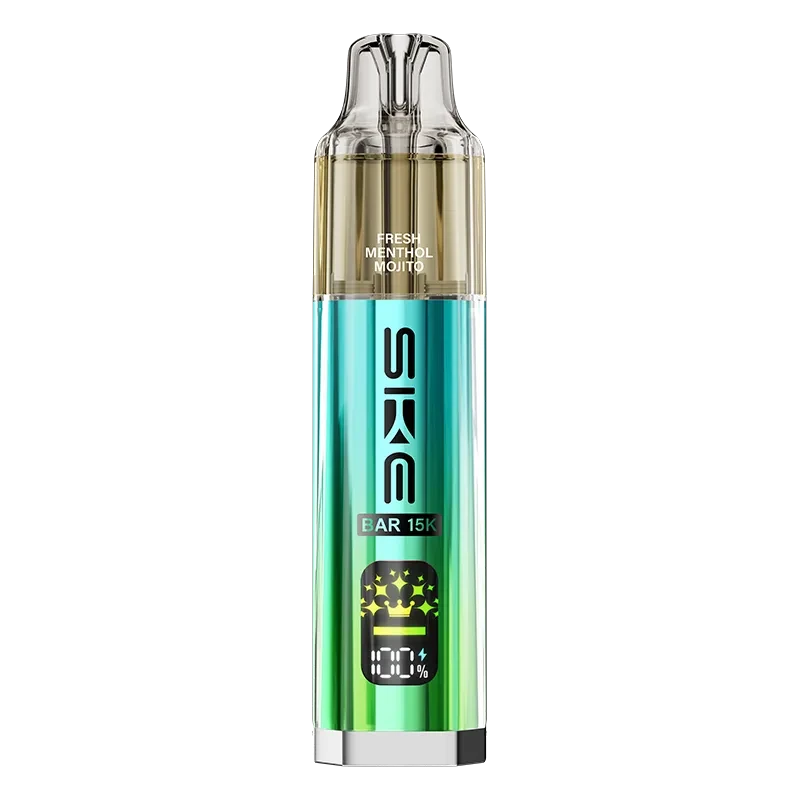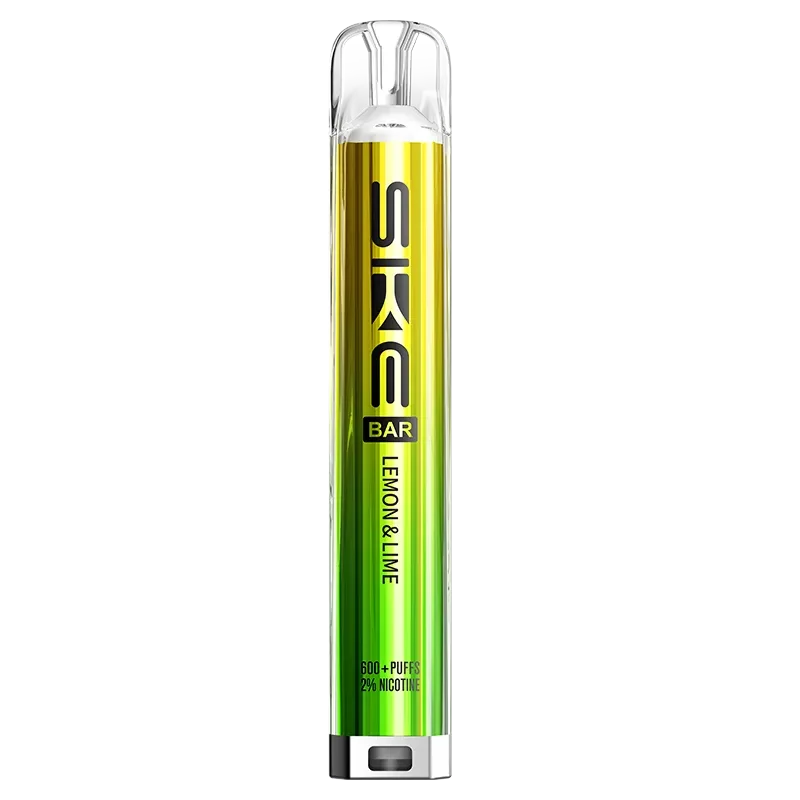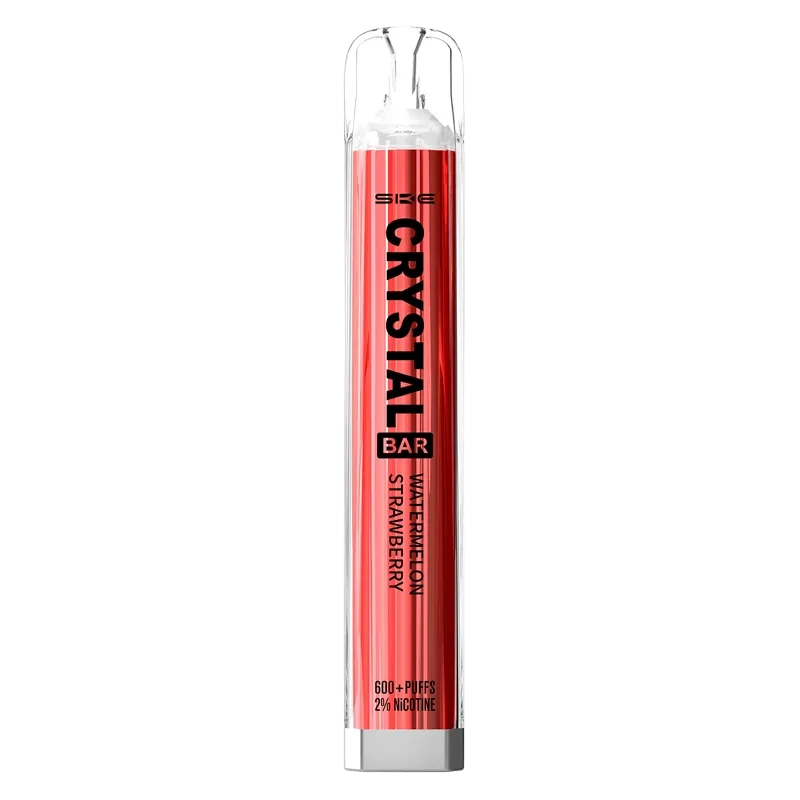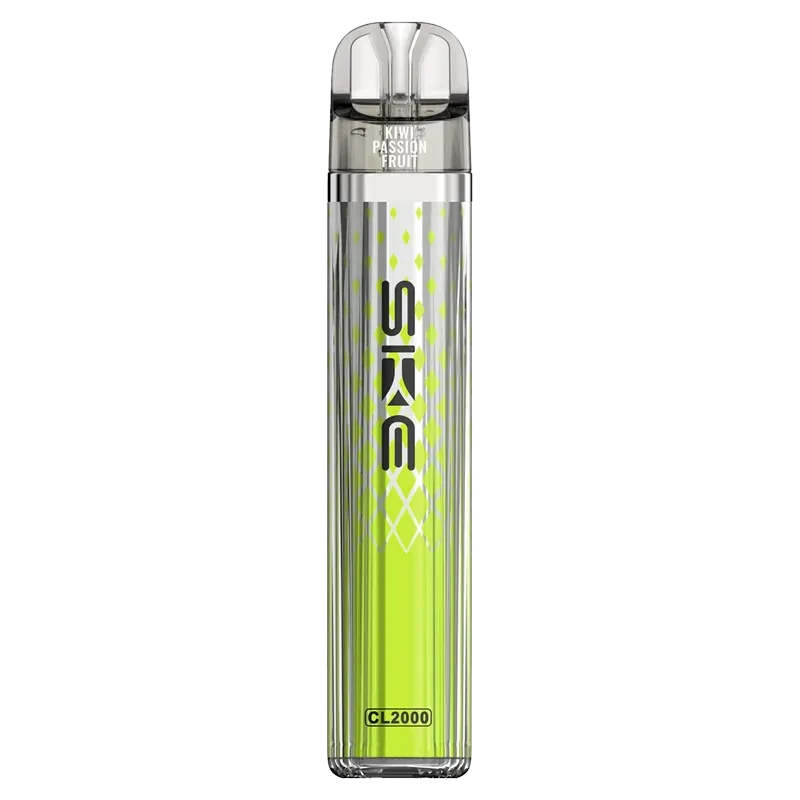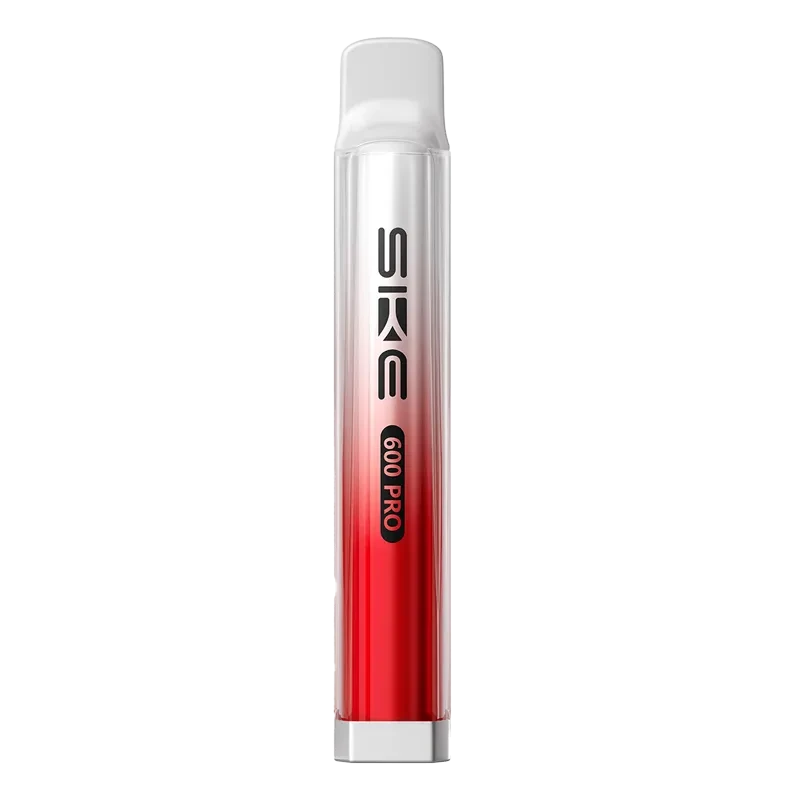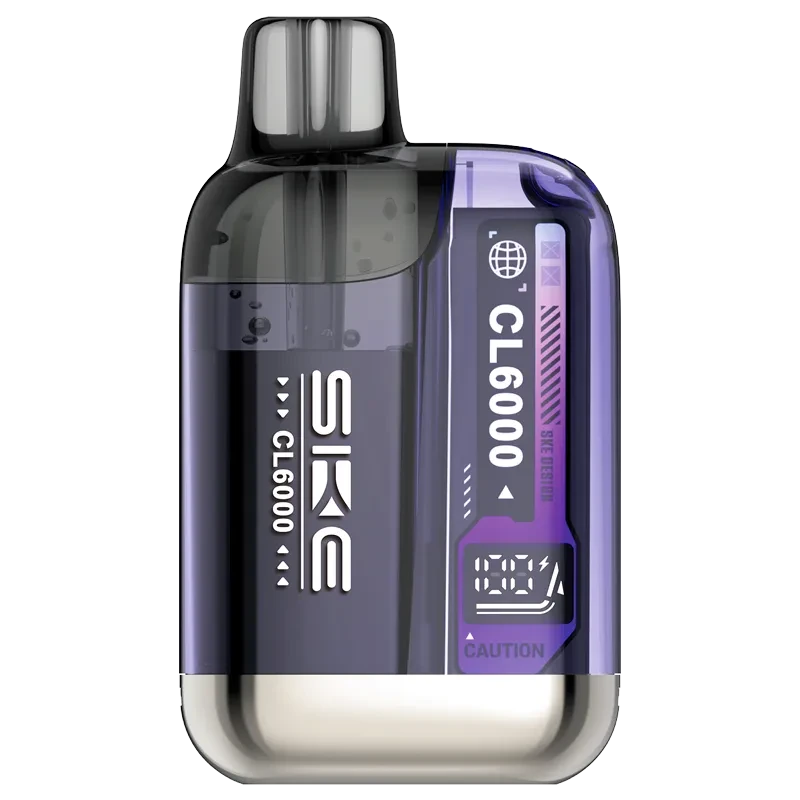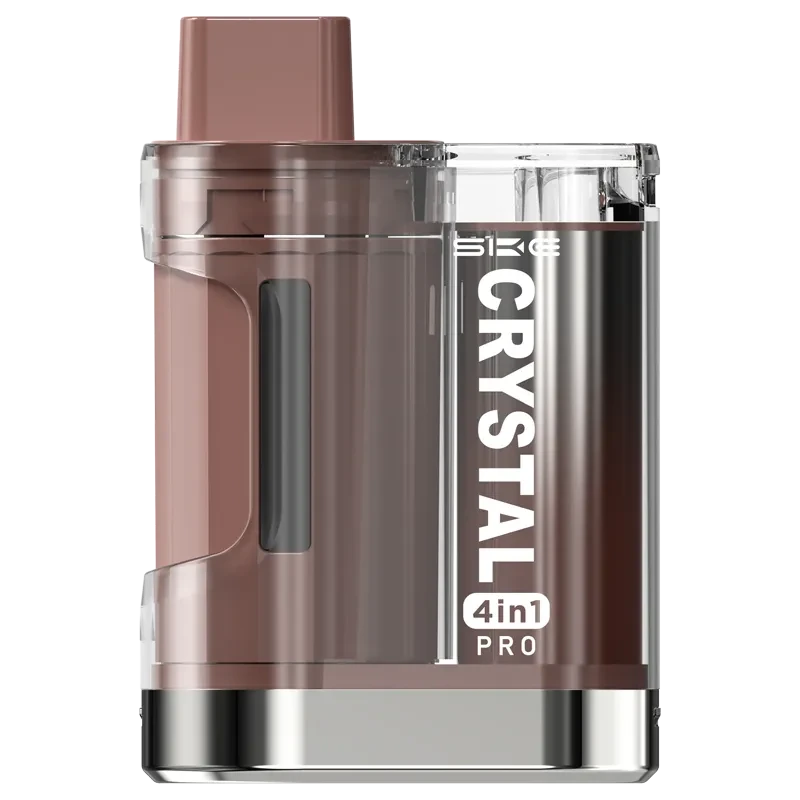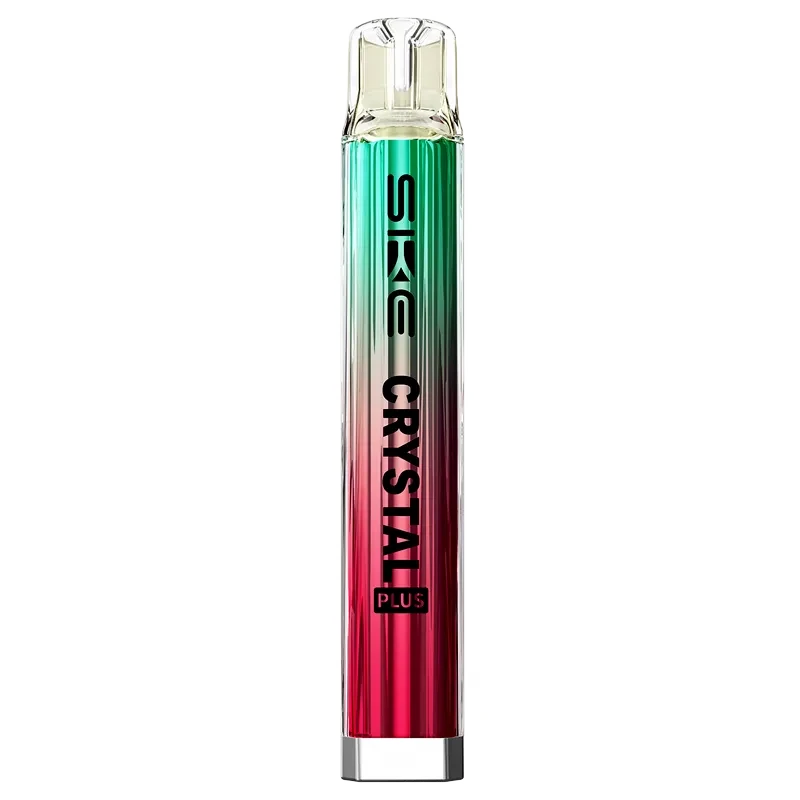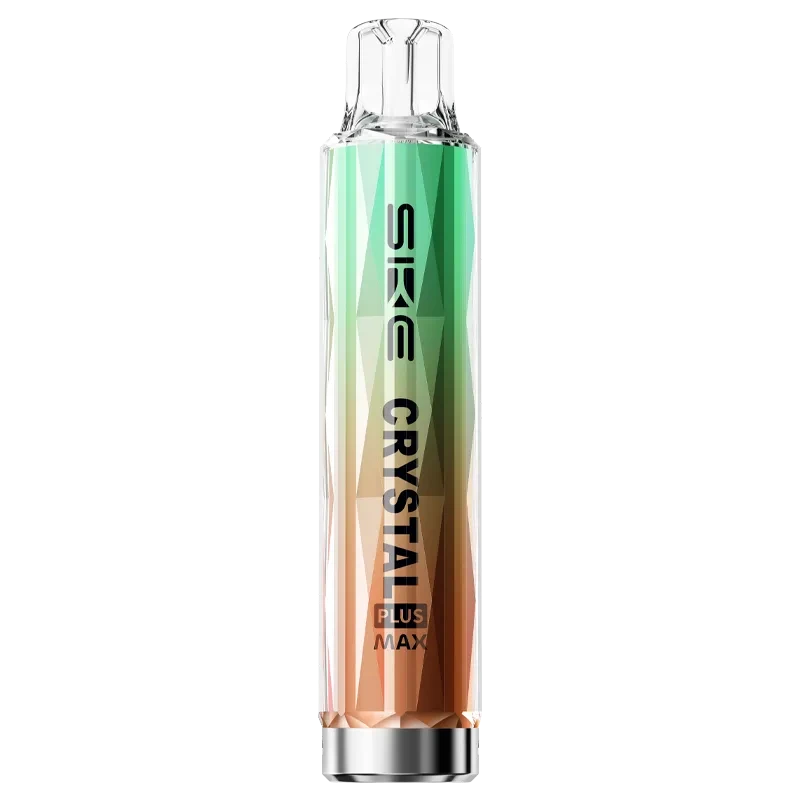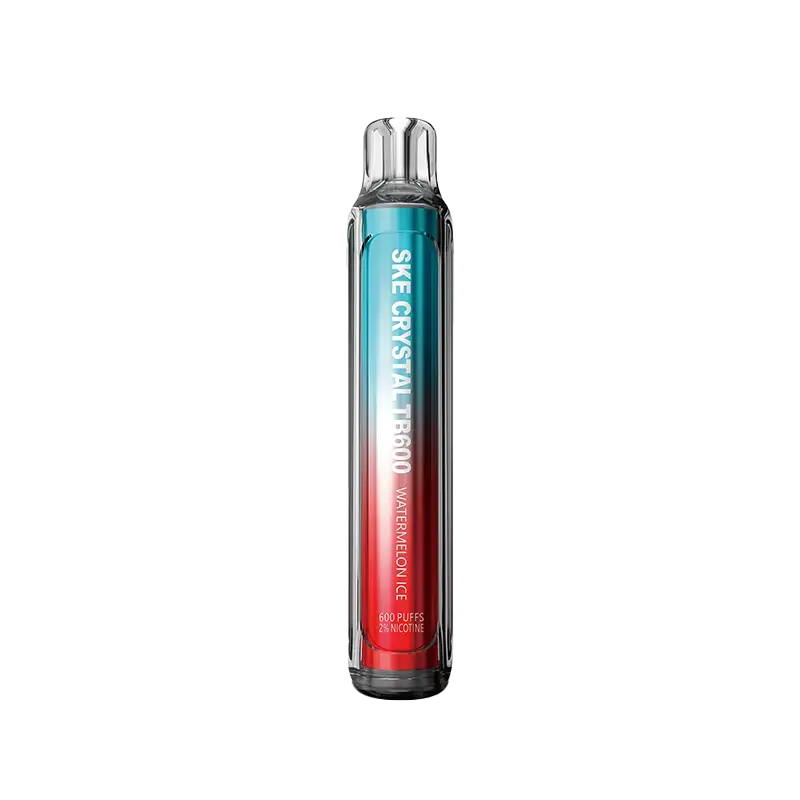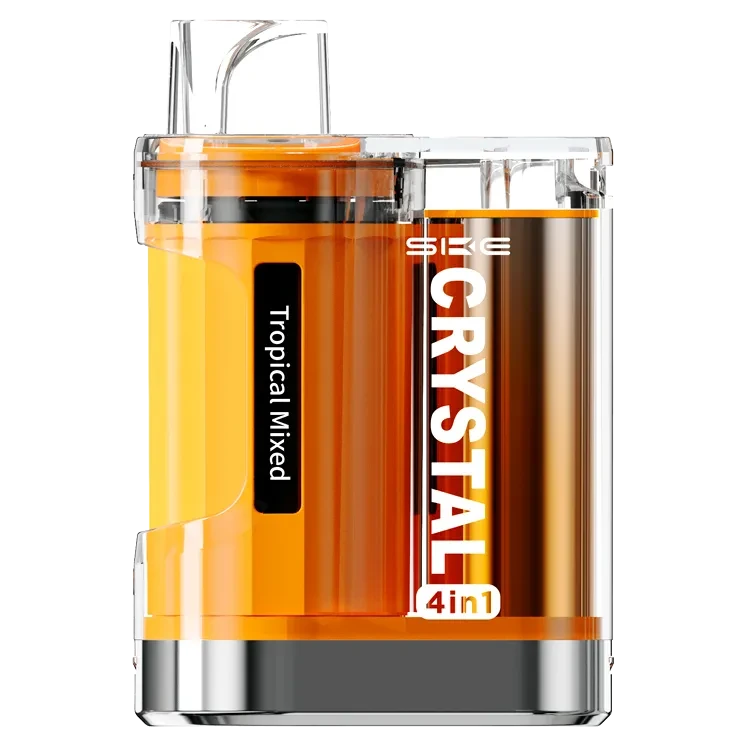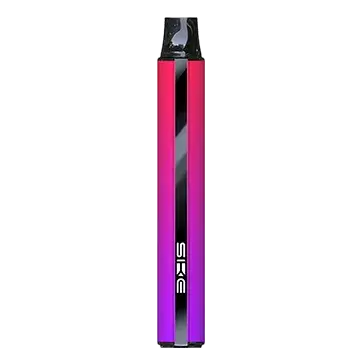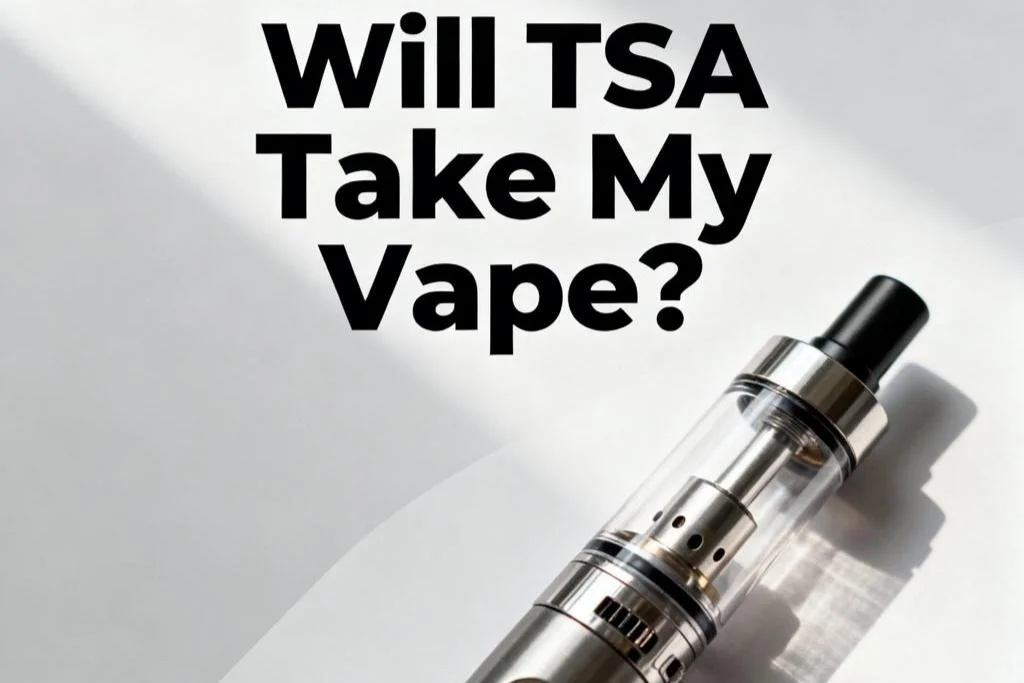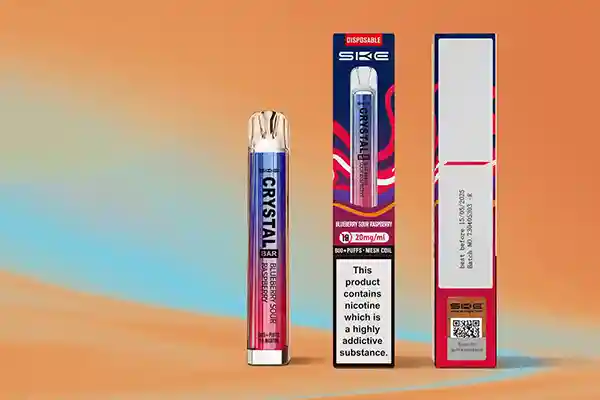DO DISPOSABLE VAPES SET OFF METAL DETECTORS?
Hey there, have you ever wondered, "Do disposable vapes set off metal detectors?" Well, you're not alone. It's a common question among the vaping community, especially for those who are always on the go and frequently find themselves passing through security checkpoints. Will a disposable vape like the Crystal Bar Vape or pod system like Crystal Plus or Crystal 4in1 go off through the metal detector? Let's dive in.

Metal Detectors: The Basics
At their core, metal detectors are fascinating devices designed to detect metal objects, but how do they do it? The magic lies in the electromagnetic field they emit. When you walk through a metal detector, you're stepping into an invisible field looking for friends — metallic ones, to be precise.
The principle here is simple yet ingenious. A metal detector sends an electromagnetic field from its coil into the surrounding area. When this field encounters metal parts — like the metallic components in your vape device — it induces an electric current in the metal. This current then generates its electromagnetic field, which the detector picks up and alerts security personnel with a beep or a visual signal. It's like the metal detector is saying, "Hey, I found something!"
Sensitivity and Detection
So, what kinds of metals can these metal detectors detect, and what does that mean for vapers? Metal detectors are tuned to be highly sensitive, capable of picking up a range of metals from ferrous (like iron and steel) to non-ferrous (such as aluminum, brass, and the metal body of some vape devices). The sensitivity is the crux because it determines what the detector sees as a friend worth mentioning.
However, compared to finding any metal, it concentrates more on finding enough metal to care. That's where things get subtle for disposable vapes. These disposable vaping devices, with their compact design, often feature a mix of metal and plastic components. The metal is primarily found in the heating element, some internal circuits, and possibly the battery, which is typically a pretty lithium-ion cell. Then, the question becomes, "Do these metallic components have enough mass and the right electromagnetic properties to make the metal detector react?"
The Electromagnetic Field
If the metal is substantial enough and conducts the detector's call effectively, you'll have a response — a beep, a light, or some form of alert. But if the metal is minimal, like in some mini disposable vapes, or if the metallic elements get shielded, the response might not happen or quiet that doesn't catch the detector's attention.
To some extent, it's like trying to hear a whisper in a crowded room. If the whisper is loud enough and at the right frequency, you'll notice. But if it's too soft or drowned out by other noises, it might as well be silent. The same goes for metal detectors and the metal in disposable vape devices. It's all about whether the "whisper" of your disposable vape's metal parts is loud enough to be heard beyond the "noise" of everything else.
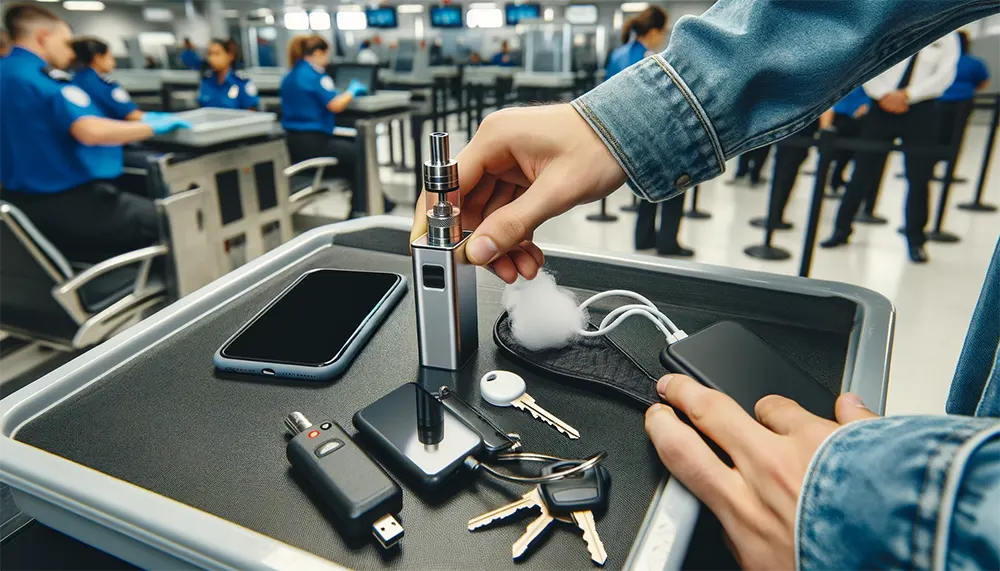
Disposable Vapes: The Components
Welcome back! After understanding the essential workings of metal detectors, it's time to zero in on our principal concern: "Do disposable vapes set off metal detectors?" To tackle this, we must understand the orchestra of components it harbors. Knowing what's under the hood will prepare you for those moments when passing through security.
1. The Battery: Powering the Experience
The central to a disposable vape's functionality is its battery, typically a lithium-ion cell. While lithium-ion is famed for its efficiency and capacity to hold charge, it's encased in metal. This metal housing is essential for the battery's integrity and performance but also places it squarely on the radar of metal detectors. The size and type of this metallic component can vary, but it's invariably present and crucial for the vaping device's operation.
2. The Heating Element: The Metallic Conductor
Another critical component is the heating element or coil (Crystal Vapes use mesh coils.), transforming vape juice into vapor. The coil uses materials such as nichrome or stainless steel, which is decidedly metallic. Its role involves conducting electricity and heating efficiently, attributes that make it another focal point for metal detectors. While compact, the coil's conductive nature means it can interact with the electromagnetic field of a detector.
3. The Chassis: A Mix of Metal and Plastic
The body of a disposable vape, often perceived as just plastic, can sometimes house metal parts. While the main frame is lightweight and predominantly plastic, certain disposable vape models may include metallic elements for added durability or aesthetic appeal. Though not as significant as the battery or coil regarding functionality, these metal parts add to the overall metallic footprint.
4. Connectivity and Circuitry: The Unsung Heroes
Within a disposable vape lies a network of small circuits and connectors, ensuring everything from the battery to the heating element works harmoniously, many of which are metallic. While individually tiny, collectively, they contribute to the metal content and could influence the disposable vape's detectability by metal detectors.
Given the array of metallic components in disposable vapes, it's plausible to think they might catch the eye of a metal detector. However, whether they trigger an alert depends on several factors, including the metal detector's sensitivity and the specific configurations of these components within the disposable vape. The question of "Can a disposable vape be detected in a metal detector?" then becomes a matter of "how much metal" and "how sensitive is the detector?" It's akin to searching for a needle in a haystack.

Security Protocols and Safety Considerations
It's crucial to navigate the rules, regulations, and responsibilities surrounding disposable vapes, especially in environments guarded by metal detectors, such as airports, government buildings, or concert venues.
The Legal Framework: Airports and Beyond
For airports, the Transportation Security Administration (TSA) in the United States and similar bodies worldwide have clear guidelines regarding electronic devices and batteries. While you're generally allowed to bring your vape pen (including disposables) in your carry-on bag, checking them in your luggage is a no-go. This rule stems from safety concerns over lithium-ion batteries, which, under certain conditions, can pose a fire risk. So, if you're pondering, "Can I bring my vape pen on a plane?" the answer is yes, in your carry-on, but with awareness and adherence to specific regulations.
However, just because you can bring your disposable vape through airport security doesn't mean you can use it at will. Most airports and airlines have strict no-vaping policies within the terminal and on board. The legal landscape here is about balancing the rights of individuals to carry certain items versus the collective right to a safe and comfortable environment.
Security Checkpoints in Secure Buildings
The legality of carrying a disposable vape into such premises, such as government buildings or private venues with metal detectors, varies widely and can depend on local laws, the venue's policies, and the discretion of security personnel. It's always best to check ahead or inquire with security upon arrival to avoid misunderstandings or confrontations.
Safety First, A Shared Responsibility
If a disposable vape accidentally activates or becomes damaged in a way that compromises the battery, it could pose a risk for the bearer and everyone in the vicinity. When asked, "Do you have any electronic devices or batteries?" a straightforward and honest response helps maintain a smooth and safe security process for all involved. It's about transparency and cooperation with security personnel, who are there to ensure everyone's safety.
Educate, Respect, and Enjoy Responsibly
For vape enthusiasts, the journey through security checkpoints, whether at an airport or a concert venue, is about respecting the rules and understanding the broader implications of our choices. Educating ourselves on the legal and safety considerations and adhering to the established protocols contribute to a safer, more enjoyable environment for everyone.

FAQs
Q1: How Do You Get Through a Metal Detector with a Disposable Vape?
The best approach is transparency and adherence to regulations. If you're passing through airport security, place your disposable vape in a tray with other electronics and personal items for X-ray screening. It's in line with TSA guidelines, which allow electronic cigarettes and vaping devices in carry-on bags but not in checked luggage. For other venues, check their specific policies beforehand. Always declare your disposable vape if asked, and be prepared for inspection. Remember, the goal is to ensure safety and compliance with rules.
Q2: Can You Bring a Vape into a Concert?
It largely depends on the venue's policies. Many concerts and events, especially those held indoors, have strict no-vaping and no-smoking policies. Some venues may allow you to bring the vaping device but prohibit its use inside. If in doubt, contact the venue directly or inquire at the entrance.
Q3: Do Batteries Set off Metal Detectors?
In general, batteries, including the lithium-ion type used in disposable vapes, can indeed be detected by metal detectors due to their metallic components. However, whether a battery will set off a metal detector depends on the sensitivity of the metal detector and the size of the battery. Small batteries, like those in disposable vapes, may not always trigger an alarm if the metal detector is calibrated to ignore small items to streamline security checks. Nonetheless, it's wise to be prepared to explain the presence of any batteries to security personnel.
Q4: Will a Vape Cartridge Set off a Metal Detector?
Vape cartridges, particularly those used with reusable vape pens, contain metal components and are likely to be detected by metal detectors. The metal in the cartridge's coil and sometimes in the casing can trigger the detector. If you're carrying a vape cartridge, especially in environments with stringent security like airports, it's best to store it in your carry-on bag and declare it during the security screening process.
Q5: Can Metal Detectors Detect Vapes?
Yes, metal detectors can detect vapes. This is because vapes, including disposable vapes, contain metal components like batteries and coils that are detectable by these devices. The likelihood of a vape pen setting off a metal detector depends on the amount of metal in the vape and the detector's sensitivity. When traveling or attending events where metal detectors are used, it's wise to be aware of this to avoid any inconvenience.

So, navigating the world with your disposable vape doesn't have to be a series of tense moments at metal detectors. Whether traveling through an airport, attending a concert, or entering a secure building, being informed and prepared is your best strategy. Remember, the linchpin to a smooth experience lies in transparency, adherence to regulations, and respect for the protocols of different venues.
TABLE OF CONTENTS
- Metal Detectors: The Basics
- Sensitivity and Detection
- The Electromagnetic Field
- Disposable Vapes: The Components
- 1. The Battery: Powering the Experience
- 2. The Heating Element: The Metallic Conductor
- 3. The Chassis: A Mix of Metal and Plastic
- 4. Connectivity and Circuitry: The Unsung Heroes
- Security Protocols and Safety Considerations
- The Legal Framework: Airports and Beyond
- Security Checkpoints in Secure Buildings
- Safety First, A Shared Responsibility
- Educate, Respect, and Enjoy Responsibly
- FAQs

